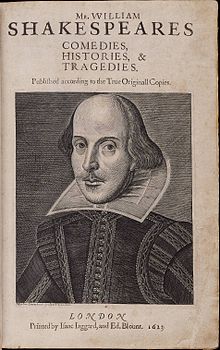-Dicken shows horror towards the revolutionary war.
-Third city: Manchester
-Dickens first had an idea to write this novel while acting
-He helped Collins in a play, which he also participated in.
-The love triangle in the play was modeled from the love triangle in The Tale of Two Cities
-Sydney (Mike) Carten sacrifices himself for love so woman he loved can be with
someone else, someone she loved deeply
-The Tale of Two Cities: London and Paris
-Change
-Historical settings
-Time period 1757-1793
-Victorians haunted by memory and example of the French Revolution
-Fear of the revolution happening in England
-The novel itself is a warnig about the revolution
Thursday, January 31, 2013
Literature Analysis: Bless Me, Ultima
1. Bless Me, Ultima by Rudolph Anaya is a novel about the protagonist coming-of-age with the help of his protector, Ultima. The novel takes place in Guadalupe, New Mexico closely after World War II and is told from the protagonis, Antonio Marez y Luna, better know as Tony as an adult looking back to his childhood memories. The author, Anaya, uses bildungsroman to portray a tale from the child's point of view of good and evil, of life and death, of myth and reality that challenges young Tony's beliefs about God, his family and his destiny. His progress in learning about life is grounded in Ultima, an aged and wise member of the community who is highly respected by Tony's parents. Tony has a very special relationship with her, as she was the midwife at his birth. Throughout the story she passes on her wisdom and knowledge to Tony. The novel begins as Tony's parents, Gabriel and Maria, invite Ultima to come and live with them when Tony is about to turn seven—just reaching the age of reason. As Tony, with Ultima's guidance, searches for his true identity and his rightful destiny, he witnesses several deaths, assists Ultima in purging his uncle Lucas of an evil spell, experiences a crisis of faith in the Catholic tradition, embraces the myth of the golden carp, discovers the sordidness of his older brother, survives a harrowing illness and realizes that he may be the only heir to the cultural and spiritual legacy that was Ultima, for Ultima is the last of her kind. Throughout the novel Tony struggles with his identity. Antonio realizes at the end of the novel that the temsion he feels as he is pulled between the free, open landscape of the llano, and the circumscribed river valley of the town, between the Márez's way of being and that of the Lunas, and between Catholicism and the indigenous religion of the golden carp, does not require him to choose one over the other. He can bring both together to form a new identity and a new religion that is made up of both.
2. One of the major themes of the novel is Antonio’s loss of innocence. At the opening of the novel, Antonio is an innocent boy, unaware of the dangers and tragedy of life. As the novel progresses, Antonio becomes more and more cognizant of the good and evil present in the world. By the end of the book, Antonio no longer possesses his innocence but has replaced it with wisdom and maturity.
Anaya uses his novel to introduce the reader to several conflicting cultures in Antonio’s childhood. First of all, Antonio’s early life is defined by the conflict between the Luna and the Marez, the two sides of his family. While the Luna are devout farmers who worship the earth and the moon, the Marez are free-spirited cowboys who are devoted to horses and the sun. Because Antonio’s three older brothers have already chosen the roaming life of the Marez, Antonio is expected to follow the path of the Luna and become a priest. However, Antonio is unwilling to make a decision either way and feels a great deal of pressure weighing on his destiny. Eventually, Ultima teaches Antonio that identity can be a combination of cultures and that he does not have to pick one side of the family to follow.
The conflict between good and evil in the novel is characterized through the relationship between Ultima and Tenorio. From the start, Ultima is described as the moral compass for the novel, protecting her community from the curses of evil witches. Tenorio, on the other hand, takes his place as Ultima’s arch-nemesis who shares his wicked daughters’ penchant for cruelty and evil. The battle between these two characters perpetuates the majority of the plot in the novel and, although both characters die at the end, Ultima’s goodness and Tenorio’s evilness are maintained.
3. Tone
1) "Ultima came to stay with us the summer I was almost seven. When she came the beauty of the llano unfolded before my eyes, and the gurgling waters of the river sang to the hum of the turning earth. The magical time of childhood stood still, and the pulse of the living earth pressed its mystery into my living blood." Pg. 1
-The tone is very enlightening and innocent, knowing Tony is still very young, without any wisdom or maturity, and Ultima's aura just blows his mind away.
2) "I had been afraid of the awful presence of the river, which was the soul of the river, but through her I learned that my spirit shared in the spirit of all things" pg.15
-Throughout the novel, the significance of nature is very clear, there is innocence and purity in nature, but something is there to impure the presences.
3) "The sun was good. The men of the llano were men of the sun. The men of the farms along the river were men of the moon. But we were all children of the white sun" pg. 27
-This specific quote, I feel like it really expresses pride and honor of the men of the llano and the farmers. Leaving determination to see what young children will become.
4) "The orange of the golden carp appeared at the edge of the pond. As he came out of the darkness of the pond the sun caught his shiny scales and the light reflected orange and yellow and red. He swam very close to our feet. His body was round and smooth in the clear water. We watched in silence at the beauty and grandeur of the great fish" pg. 115
-I really like this part of the novel. The whole idea of the golden carp is so majestic and gives hope, and thoughts of what it may symbolize. The beauty and its existence made the tone more warmer, happier and brighter.
5) "There are so many dreams to be fulfilled, but Ultima says a man's destiny must unfold itself like a flower, with only the sun and the earth and water making it blossom, and no one else meddling in it-" pg. 223
-I enjoyed reading this, actually I read it a few times, but the tone has honor and determination of what you may become.
4. Symbolism is a great aspect of the whole novel. Nature is a prominent factor in which Ultima connects with to do the things she does and teach Tony the reasons for life. There is always good and evil, right and wrong, but there are ways in life to make even the wrongs and evil, right and good. You can't always avoid the bad things and embrace only the good things. As Tony matures, he gets a greater understanding of life's meaning and his duty as an individual.
"'Take the llano and the river valley, the moon and the sea, God and the golden carp-and make something new,' I said to myself"
"Around me the moonlight glittered on the pebbles of the llano, and in the night sky a million stars sparkled. Across the river I could see the twinkling lights of the town. In a week I would be returning to school, and as always I would be running up the goat path and crossing the bridge to go to church. Sometime in the future I would have to build my own dream out of those things that were so much a part of my childhood"
2. One of the major themes of the novel is Antonio’s loss of innocence. At the opening of the novel, Antonio is an innocent boy, unaware of the dangers and tragedy of life. As the novel progresses, Antonio becomes more and more cognizant of the good and evil present in the world. By the end of the book, Antonio no longer possesses his innocence but has replaced it with wisdom and maturity.
Anaya uses his novel to introduce the reader to several conflicting cultures in Antonio’s childhood. First of all, Antonio’s early life is defined by the conflict between the Luna and the Marez, the two sides of his family. While the Luna are devout farmers who worship the earth and the moon, the Marez are free-spirited cowboys who are devoted to horses and the sun. Because Antonio’s three older brothers have already chosen the roaming life of the Marez, Antonio is expected to follow the path of the Luna and become a priest. However, Antonio is unwilling to make a decision either way and feels a great deal of pressure weighing on his destiny. Eventually, Ultima teaches Antonio that identity can be a combination of cultures and that he does not have to pick one side of the family to follow.
The conflict between good and evil in the novel is characterized through the relationship between Ultima and Tenorio. From the start, Ultima is described as the moral compass for the novel, protecting her community from the curses of evil witches. Tenorio, on the other hand, takes his place as Ultima’s arch-nemesis who shares his wicked daughters’ penchant for cruelty and evil. The battle between these two characters perpetuates the majority of the plot in the novel and, although both characters die at the end, Ultima’s goodness and Tenorio’s evilness are maintained.
3. Tone
1) "Ultima came to stay with us the summer I was almost seven. When she came the beauty of the llano unfolded before my eyes, and the gurgling waters of the river sang to the hum of the turning earth. The magical time of childhood stood still, and the pulse of the living earth pressed its mystery into my living blood." Pg. 1
-The tone is very enlightening and innocent, knowing Tony is still very young, without any wisdom or maturity, and Ultima's aura just blows his mind away.
2) "I had been afraid of the awful presence of the river, which was the soul of the river, but through her I learned that my spirit shared in the spirit of all things" pg.15
-Throughout the novel, the significance of nature is very clear, there is innocence and purity in nature, but something is there to impure the presences.
3) "The sun was good. The men of the llano were men of the sun. The men of the farms along the river were men of the moon. But we were all children of the white sun" pg. 27
-This specific quote, I feel like it really expresses pride and honor of the men of the llano and the farmers. Leaving determination to see what young children will become.
4) "The orange of the golden carp appeared at the edge of the pond. As he came out of the darkness of the pond the sun caught his shiny scales and the light reflected orange and yellow and red. He swam very close to our feet. His body was round and smooth in the clear water. We watched in silence at the beauty and grandeur of the great fish" pg. 115
-I really like this part of the novel. The whole idea of the golden carp is so majestic and gives hope, and thoughts of what it may symbolize. The beauty and its existence made the tone more warmer, happier and brighter.
5) "There are so many dreams to be fulfilled, but Ultima says a man's destiny must unfold itself like a flower, with only the sun and the earth and water making it blossom, and no one else meddling in it-" pg. 223
-I enjoyed reading this, actually I read it a few times, but the tone has honor and determination of what you may become.
4. Symbolism is a great aspect of the whole novel. Nature is a prominent factor in which Ultima connects with to do the things she does and teach Tony the reasons for life. There is always good and evil, right and wrong, but there are ways in life to make even the wrongs and evil, right and good. You can't always avoid the bad things and embrace only the good things. As Tony matures, he gets a greater understanding of life's meaning and his duty as an individual.
"'Take the llano and the river valley, the moon and the sea, God and the golden carp-and make something new,' I said to myself"
"Around me the moonlight glittered on the pebbles of the llano, and in the night sky a million stars sparkled. Across the river I could see the twinkling lights of the town. In a week I would be returning to school, and as always I would be running up the goat path and crossing the bridge to go to church. Sometime in the future I would have to build my own dream out of those things that were so much a part of my childhood"
Wednesday, January 30, 2013
Quote: 2
“ You know, sometimes all you need is twenty seconds of insane courage. Just literally twenty seconds of just embarrasing bravery. And I promise you, something great will come of it… ”
Quote: 1
Love is like sunshine. It brings a golden glow to its beholder's face. And a warm feeling all over their body. It awakens souls and opens eyes. And when its over, it leaves billions of small memories called stars. To remind the world, that it still exists.
Tuesday, January 29, 2013
What's The Story?
Why did Charles Dickens write the novel you're reading/reviewing? What in your
analysis of literary techniques led you to this conclusion? (Make sure to
include textual support illustrating Dickens' use of at least three techniques
we've studied/discussed this year.)
I believe Dickens wrote Great Expectations, to portray or to express, the differences of idealism and reality. Often times, people are so caught up with the thoughts of "wanting" something, but in reality, these things are hard to obtain. Pip is always looking for who he really is, he knows his life and his thought processes are not normal, but then again, what is normal? Growing up, he did not have that permanent figure of a father, which he spends his life pondering, testing the male characters in his life and portraying to his ideal or fantasy charateristics of a father. He also protrays the men in his life, such as Joe, Jaggers, Magwitch, and possibly even the female characters as his own mirror image or maybe even his future self. All most people want is happiness for themselves, having people they love around them and having to make no sacrifices, but in reality, we have to make several sacrifices to obtain one thing, not necessarily what we may want, but more so of what we need. The novel is quite dark, gloomy and negative, the characters are distressed, confused, unsure, unclear, unhappy, unemotional and so on. Not very many of them are happy with who or what they are and are illustrated as the negative aspects of human nature.
I believe Dickens wrote Great Expectations, to portray or to express, the differences of idealism and reality. Often times, people are so caught up with the thoughts of "wanting" something, but in reality, these things are hard to obtain. Pip is always looking for who he really is, he knows his life and his thought processes are not normal, but then again, what is normal? Growing up, he did not have that permanent figure of a father, which he spends his life pondering, testing the male characters in his life and portraying to his ideal or fantasy charateristics of a father. He also protrays the men in his life, such as Joe, Jaggers, Magwitch, and possibly even the female characters as his own mirror image or maybe even his future self. All most people want is happiness for themselves, having people they love around them and having to make no sacrifices, but in reality, we have to make several sacrifices to obtain one thing, not necessarily what we may want, but more so of what we need. The novel is quite dark, gloomy and negative, the characters are distressed, confused, unsure, unclear, unhappy, unemotional and so on. Not very many of them are happy with who or what they are and are illustrated as the negative aspects of human nature.
I love this quote!
"What is it that makes you want to write songs? In a way you want to stretch
yourself into other people's hearts. You want to plant yourself there, or at
least get a resonance, where other people become a bigger instrument than the
one you're playing. It becomes almost an obsession to touch other people. To
write a song that is remembered and taken to heart is a connection, a touching
of bases. A thread that runs through all of us. A stab to the heart. Sometimes I
think songwriting is about tightening the heartstrings as much as possible
without bringing on a heart attack." -Keith Richards
Lit Terms 31-56
Denotation: Plain dictionary definition.
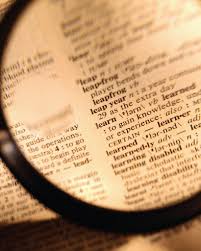
Denouement: loose ends tied up in a story after the climax, closure, conclusion
Dichotomy: split or break between two opposing things.

Diction: the style of speaking or writing as reflected in the choice and use of words
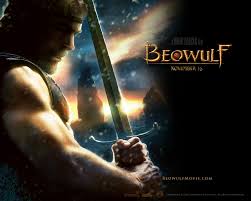




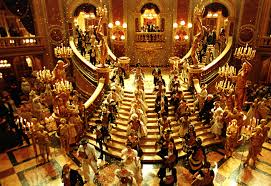
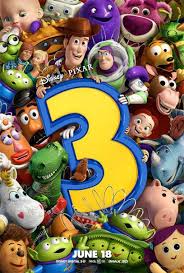
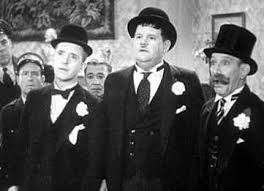

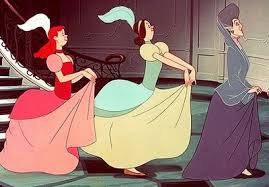
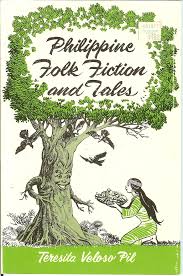
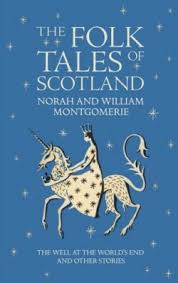

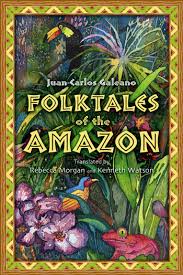
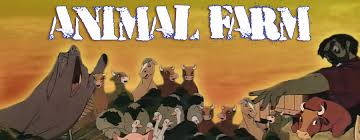
Free Verse: verse without conventional metrical pattern, with irregular pattern or no rhyme.
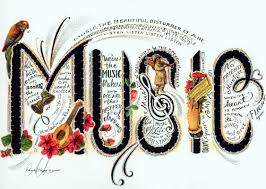
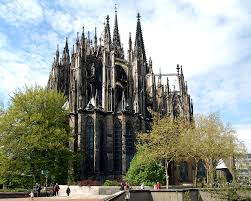


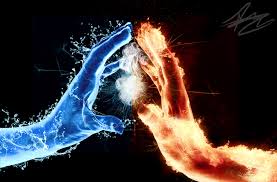
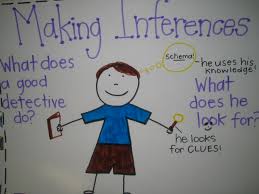
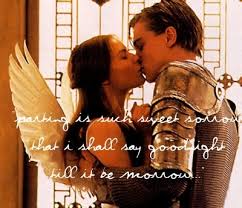


Denouement: loose ends tied up in a story after the climax, closure, conclusion
Dialect: the language of a particular district,
class or group of persons; the sounds, grammar, and diction employed by people
distinguished from others.
Dialectics: formal debates usually over the
nature of truth.Dichotomy: split or break between two opposing things.
Diction: the style of speaking or writing as reflected in the choice and use of words
Didactic: having to do with the transmission of
information; education.
Dogmatic: rigid in beliefs and
principles.
Elegy: a mournful, melancholy poem,
especially a funeral song or lament for the dead, sometimes contains general
reflections on death, often with a rural or pastoral setting.
Epic: a long narrative poem unified by a hero
who reflects the customs, mores, and aspirations of his nation of race as he
makes his way through legendary and historic exploits, usually over a long
period of time (definition bordering on circumlocution).
Epigram: witty aphorism
Epitaph: any brief inscription in prose or verse on a tombstone; a short formal
poem of commemoration often a credo written by the person who wishes it to be on
his tombstone.
Epithet: a short, descriptive name or phrase
that may insult someone’s character,
characteristics
Nicknames.. "He's a pig" "hey, shorty"
Euphemism: the use of an indirect, mild or
vague word or expression for one thought to be coarse, offensive, or
blunt.
Evocative (evocation): a calling forth of
memories and sensations; the suggestion or production through artistry and
imagination of a sense of reality.
Exposition: beginning of a story that sets
forth facts, ideas, and/or characters, in a detailed
Expressionism: movement in art, literature,
and music consisting of unrealistic
representation of an inner idea or feeling(s).
Fable: a short, simple story, usually with
animals as characters, designed to teach a moral truth.
Fallacy: from Latin word “to deceive”, a
false or misleading notion, belief, or argument; any kind of erroneous reasoning
that makes arguments unsound.
Falling Action: part of the narrative or
drama after the climax.
Farce: a boisterous comedy involving
ludicrous action and dialogue.Figurative Language: apt and imaginative
language characterized by figures of speech (such as metaphor and
simile).
Flashback: a narrative device that flashes
back to prior events.
Foil: a person or thing that, by contrast,
makes another seem better or more prominent.
Folk Tale: story passed on by word of
mouth.
Foreshadowing: in fiction and drama, a device
to prepare the reader for the outcome of the action; “planning” to make the
outcome convincing, though not to give it away.
Free Verse: verse without conventional metrical pattern, with irregular pattern or no rhyme.
Fog by Carl sandburg
The fog comes
on little cat feet.
It sits looking
over harbor and city
on silent haunches
and then moves on
on little cat feet.
It sits looking
over harbor and city
on silent haunches
and then moves on
Genre: a category or class of artistic
endeavor having a particular form, technique, or content.
Gothic Tale: a style in literature
characterized by gloomy settings, violent or grotesque action, and a mood of
decay, degeneration, and decadence.
Hyperbole: an exaggerated statement often
used as a figure of speech or to prove a point.
Imagery: figures of speech or vivid
description, conveying images through any of the senses.
Lips as red as rose, hair black as ebony, skin as white as snow
Implication: a meaning or understanding that
is to be arrive at by the reader but that is not fully and explicitly stated by
the author.
Incongruity: the deliberate joining of
opposites or of elements that are not appropriate to each other.
Inference: a judgement or conclusion based on
evidence presented; the forming of an opinion which possesses some degree of
probability according to facts already available.
Irony: a contrast or incongruity between what
is said and what is meant, or what is expected to happen and what actually
happens, or what is thought to be happening and what is actually
happening.
Interior Monologue: a form of writing which
represents the inner thoughts of a character; the recording of the internal,
emotional experience(s) of an individual; generally the reader is given the
impression of overhearing the interior monologue.
Inversion: words out of order for
emphasis.
Juxtaposition: the intentional placement of a
word, phrase, sentences of paragraph to contrast with another nearby.
Lyric: a poem having musical form and
quality; a short outburst of the author’s innermost thoughts and
feelings.
Tuesday, January 22, 2013
AP Lit Terms 6-30
Analogy:
Antagonist:
--Dracula (Bram Stoker's "Dracula")
--Edmund (William Shakespeare's "King Lear")
--Fagin (Charles Dickens' "Oliver Twist")
--Grendel ("Beowulf")
--Iago (Shakespeare's "Othello")
--Long John Silver (Robert Louis Stevenson's "Treasure Island")
--Mr. Hyde (Robert Louis Stevenson's "The Strange Case of Dr. Jekyll and Mr. Hyde")
--Professor Moriarty (Arthur Conan Doyle's "Sherlock Holmes" series)
--Raskolnikov (Fyodor Dostoyevsky's "Crime and Punishment")
--Simon Legree (Harriett Beecher Stowe's "Uncle Tom's Cabin")
--Uriah Heep (Charles Dickens' "David Copperfield")
--The Wicked Witch of the West (L. Frank Baum's "The Wizard of Oz")
Antithesis:
Hot Cold
Ebony and Ivory
Black and White
Bitter-sweet
Student Teacher
Cold as Hell
Pretty Ugly
Delightfully Wicked
The Agony of Ecstacy
Act Naturally
Accidentally on Purpose
Idiot Savant
Lets agree to disagree
Aphorism:
Science is organized knowledge. — Herbert Spencer
Lost time is never found again. — Benjamin Franklin
Greed is a permanent slavery. — Ali
Nothing great was ever achieved without enthusiasm. — Ralph Waldo Emerson
Death with dignity is better than life with humiliation. — Husayn ibn Ali
Apologia:
Apostrophe:
"O, pardon me, thou bleeding piece of earth, / That I am meek and gentle with these butchers! / Thou art the ruins of the noblest man / That ever lived in the tide of times." Shakespeare, Julius Caesar, Act 3, Scene 1
"Is this a dagger which I see before me, The handle toward my hand? Come, let me clutch thee! I have thee not, and yet I see thee still." Shakespeare, Macbeth, Act 2, Scene 1
"And you, Eumaeus..." the Odyssey
"O My friends, there is no friend." Montaigne, originally attributed to Aristotle.
Argument(ation):
Assumption:

Characterization:
-The patient boy and quiet girl were both well mannered and did not disobey their mother, is an example of direct characterization.
So, if you were to say, That is a very nice table, then the noun, being the table and the adjective, being nice.
Chiasmus:

Cliche:
"Don't put off for tomorrow what you can do today"; "As easy as pie"; "There's no place like home"; "A chain is only as strong as its weakest link"; "Many hands make light work".
Climax:
Analysis:
Anaphora:
Anecdote:
My sons are very tall. When my oldest boy was getting taller and taller, people always asked him, "Do you play basketball?" He would answer, "Why? Do you play miniature golf?" He stopped saying that when he decided it was a smart aleck thing to say. To this day when little kids ask him how he got so tall he says, "I always ate all my vegetables."Antagonist:
--Dracula (Bram Stoker's "Dracula")
--Edmund (William Shakespeare's "King Lear")
--Fagin (Charles Dickens' "Oliver Twist")
--Grendel ("Beowulf")
--Iago (Shakespeare's "Othello")
--Long John Silver (Robert Louis Stevenson's "Treasure Island")
--Mr. Hyde (Robert Louis Stevenson's "The Strange Case of Dr. Jekyll and Mr. Hyde")
--Professor Moriarty (Arthur Conan Doyle's "Sherlock Holmes" series)
--Raskolnikov (Fyodor Dostoyevsky's "Crime and Punishment")
--Simon Legree (Harriett Beecher Stowe's "Uncle Tom's Cabin")
--Uriah Heep (Charles Dickens' "David Copperfield")
--The Wicked Witch of the West (L. Frank Baum's "The Wizard of Oz")
Antithesis:
Hot Cold
Ebony and Ivory
Black and White
Bitter-sweet
Student Teacher
Cold as Hell
Pretty Ugly
Delightfully Wicked
The Agony of Ecstacy
Act Naturally
Accidentally on Purpose
Idiot Savant
Lets agree to disagree
Aphorism:
Science is organized knowledge. — Herbert Spencer
Lost time is never found again. — Benjamin Franklin
Greed is a permanent slavery. — Ali
Nothing great was ever achieved without enthusiasm. — Ralph Waldo Emerson
Death with dignity is better than life with humiliation. — Husayn ibn Ali
Apologia:
Apostrophe:
Argument(ation):
Assumption:
- I made the assumption that he was coming, so I was surprised when he didn't show up.
- He will come home tomorrow. At least, that's my assumption.
- Many scientific assumptions about Mars were wrong.
- I'm telling you our arrival time on the assumption that you will check to see whether or not our flight is on time before you come to the airport.
- Her plan is based on the underlying assumption that the economy will improve in the near future.
- her assumption of the presidency
- the buyer's assumption of debt

Characterization:
-The patient boy and quiet girl were both well mannered and did not disobey their mother, is an example of direct characterization.
So, if you were to say, That is a very nice table, then the noun, being the table and the adjective, being nice.
Chiasmus:
Circumlocation:
"Or lose your heart, or your chaste treasure open To his unmast'red importunity." William Shakespeare, Hamlet
"Bright Tithonia had brought out her laboring chariot from the sky and Night and Sleep with empty horn were fleeing the wakeful reins of the pale goddess." Statius describing 'it was dawn'
"Close by those meads, forever crowned with flowers,
Where Thames with pride surveys his rising towers,
There stands a structure of majestic frame,
Which for the neighb’ring Hampton takes its name."
from “The Rape of the Lock” Pope
"Bright Tithonia had brought out her laboring chariot from the sky and Night and Sleep with empty horn were fleeing the wakeful reins of the pale goddess." Statius describing 'it was dawn'
"Close by those meads, forever crowned with flowers,
Where Thames with pride surveys his rising towers,
There stands a structure of majestic frame,
Which for the neighb’ring Hampton takes its name."
from “The Rape of the Lock” Pope
Classicism:

Cliche:
"Don't put off for tomorrow what you can do today"; "As easy as pie"; "There's no place like home"; "A chain is only as strong as its weakest link"; "Many hands make light work".
Climax:
Colloquialism:
1) grub - can mean either dirty child or food. eg He is a little grub. The grub was great.
2) maggot bag - a meat pie, single serve size. eg Are you eating a maggot bag again?
3) Kid - a child. I have one kid, it's a boy.
4) adam's ale - water. eg I had a drink of adam's ale.
5) knickers - underpants. eg It was so frightening I got skidd marks in my knickers.
2) maggot bag - a meat pie, single serve size. eg Are you eating a maggot bag again?
3) Kid - a child. I have one kid, it's a boy.
4) adam's ale - water. eg I had a drink of adam's ale.
5) knickers - underpants. eg It was so frightening I got skidd marks in my knickers.
Comedy:
Conflict:
Connotation:
Wednesday, January 16, 2013
Saint Crispian's Speech: Henry V
Yeah... This was like my tenth time because my dogs and cats kept trying to interrupt. Then my mom came into the house singing... Then when i threw the paper I hit a candle stand. Anyways, it's a little choppy but I tried really hard to memorize it!
Lit Terms 1-5
ALLEGORY: A tale in prose or verse in which characters, actions or setting represent abstract ideas or moral qualities; a story that uses moral symbols to state a point.
ALLITERATION: The repetition of similar initial sounds, usually consonants in a group of words.
ALLUSION: A reference to a person, a place, an event or literary work that writer expects a reader to recongnize.
AMBIGUITY: Something uncertain as to interpretation.
ANACHRONISM: Something that shows up in the wrong place or the wrong time.
Tuesday, January 15, 2013
Spring Semester Plan 1
Specific
Measurable
Attainable
Reinforceable
Timely
My SMART goal is to become a personal trainer/ therapist for a professional tennis player. During this spring semester I want to focus on passing the AP test and trying to improve on my writing skills. I'm also wanting to work on time management now that I have school, tennis, and two jobs. I want to try my best in everything I'm doing during the course to make sure teachers and colleagues acknowledge me and my work.
Measurable
Attainable
Reinforceable
Timely
My SMART goal is to become a personal trainer/ therapist for a professional tennis player. During this spring semester I want to focus on passing the AP test and trying to improve on my writing skills. I'm also wanting to work on time management now that I have school, tennis, and two jobs. I want to try my best in everything I'm doing during the course to make sure teachers and colleagues acknowledge me and my work.
Thursday, January 10, 2013
AP Prep Post 1: SIDDHARTHA
AP Questions:
1. (Essay topic)
URL: jneff.wikispaces.com/.../Open+Question+Practice+Activity.doc
3. Does verbal communication play a positive role in the spiritual progression of characters in Siddhartha? What kind of communication is most effective in Siddhartha? Speeches? Body language?
Answer: By what we have read in the passage, it seems as though verbal communication is not the prominent tactic of speaking. I remember Siddhartha often, or most of the time meditates, feels nature, listens to nature, rather than having majjor associations with people.
URL: http://www.shmoop.com/siddhartha/language-communication-theme.html
4. Consider Siddhartha’s relationship with Govinda. How are they similar, and how are they different? What are the narrative functions of Govinda’s reappearance throughout the novel? How does their relationship impact the novel’s ending?
Answer: You can't really get much from the passage to answer this.. But you can understand that Govinda is a really significant figure in Siddhartha's life or journey to be reborn.
URL: http://www.sparknotes.com/lit/siddhartha/study.html
5. What is the significance of the name Siddhartha?
Answer: You must read the novel or look up the meaning of his name.
URL: http://docsfiles.com/pdf_siddhartha_study_questions_part_one.html
1. (Essay topic)
A symbol is an object, action, or event that represents
something or that creates a range of associations beyond itself. In literary
works a symbol can express an idea, clarify meaning, or enlarge literal
meaning. Select a novel or play and, focusing on one symbol, write an essay
analyzing how that symbol functions in the work and what it reveals about the
characters or themes of the work as a whole. Do not merely summarize the plot.
Answer: The passage wouldn't be enough to cover several of the symbols expressed in the novel but the passage may be an significant part of the essay. Throughout the novel Herman Hesse portrays Siddhartha's emotions or thought processes through imagery, flashbacks of past events from the novel, change in tone and simply comparing him to something else, usually something in nature.
URL: jneff.wikispaces.com/.../Open+Question+Practice+Activity.doc
2. What the symbol reveals to Siddhartha (both character
and theme) about the unity of all beings.
Leads to his final epiphany and
enlightenment. The river is a river,
but it is also the connection of all
creatures great, small, friend, and foe.
Only when we realize that everyone we encounter in life is a
necessary part of
our journey and someone to learn from will we achieve our own personal
enlightenment.
Answer: In the passage, it doesn't ellaborate on the importance of the symbol of water or the river. You may need to read the whole novel to get the big picture of why this element is so significant. URL: jneff.wikispaces.com/.../Open+Question+Practice+Activity.doc
3. Does verbal communication play a positive role in the spiritual progression of characters in Siddhartha? What kind of communication is most effective in Siddhartha? Speeches? Body language?
Answer: By what we have read in the passage, it seems as though verbal communication is not the prominent tactic of speaking. I remember Siddhartha often, or most of the time meditates, feels nature, listens to nature, rather than having majjor associations with people.
URL: http://www.shmoop.com/siddhartha/language-communication-theme.html
4. Consider Siddhartha’s relationship with Govinda. How are they similar, and how are they different? What are the narrative functions of Govinda’s reappearance throughout the novel? How does their relationship impact the novel’s ending?
Answer: You can't really get much from the passage to answer this.. But you can understand that Govinda is a really significant figure in Siddhartha's life or journey to be reborn.
URL: http://www.sparknotes.com/lit/siddhartha/study.html
5. What is the significance of the name Siddhartha?
Answer: You must read the novel or look up the meaning of his name.
URL: http://docsfiles.com/pdf_siddhartha_study_questions_part_one.html
Tuesday, January 8, 2013
What's In This For Me
This is the last semester of high school... WOW. I don't know if it's exciting or kind of sad.. Anyways, this semester I want to focus on school more, make it count, and I want to really improve on writing and comprehending literature. English has always been my weakest subjet but I honestly really try to persevere. I want to get rid of bad writing habits and be able to thoroughly explain myself. Trying not to get lazy is going to be important, I really want to try not to procastinate so if I have questions I can ask people before hand rather than asking them the night before. Overall, just writing.. I've never really had any confidence in my writing so it's be cool to leave high school knowing that I have an idea of how to write something decent.
Subscribe to:
Posts (Atom)

